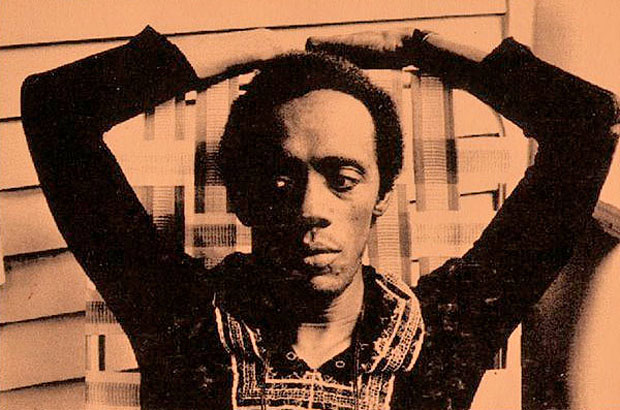Home » Jazz Articles » The Moment's Energy » Marion Brown: The Freshness after the Rain
Marion Brown: The Freshness after the Rain

Reed player and percussionist Marion Brown's music is a singular thing. Through his associations in the 1960s—not the least of these being as a sideman on

John Coltrane
saxophone1926 - 1967
If Ascension can be viewed as the coming together of a fair percentage of those musicians preoccupied with "the new" at the time, it can also be considered as a celebration of stylistic diversity. Neither Brown nor his fellow alto saxophonist

John Tchicai
saxophone1936 - 2012

Ornette Coleman
saxophone, alto1930 - 2015
But it's true to say that the meditative aspects of Brown's music, which again only become obvious over the course of time, are subsumed within that album's febrile environment. Yet his take on the new itself was to evolve considerably, and at an extraordinary rate. Three for Shepp (Impulse!, 1966), the title itself an echo of

Archie Shepp
saxophone, tenorb.1937
Anger is, of course, a viable means for artistic expression, but what's apparent if we consider the trajectory of Brown's association with the Impulse! label is that his anger, in as much as he felt any, was subsumed within wide-ranging concerns which shaped the character of his work not only as an instrumentalist but also as an organizer of sound—a description which is closer to the truth of the matter than "composer" even if the interactional relationship between composer and musicians is held in the highest esteem.
Afternoon of a Georgia Faun (ECM, 1970) is far more indicative of a major shift in emphasis. By this time Brown's music had become something which quietly demanded that its players also be virtuoso listeners. The presence of the likes of saxophonist

Anthony Braxton
woodwindsb.1945

Andrew Cyrille
drumsb.1939

Chick Corea
piano1941 - 2021
Geechee Reflections (Impulse!, 1972) was recorded by a percussion-heavy ensemble in June of 1973. On the surface the music owes some debt to the

Art Ensemble Of Chicago
band / ensemble / orchestraFor whatever reason, these last three albums amount to both an oeuvre in themselves and a strand of Brown's music which never made it any further, at least on record. Other facets of his artistry have their own rewards of course, but they're notably different to what went down on these occasions. Further discussion and analysis of why this is falls outside the limited scope of a piece like this, but in a way that's no bad thing as it can be argued that concentration upon these three titles reveals music that's as close to unique as anything in the recorded canon.
Selected Discography
Mal Waldron/Marion Brown, Songs of Love & Regret (Freelance, 1985)
Marion Brown/Gunther Hampel, Reeds 'n' Vibes (IAI, 1978)
Marion Brown, Sweet Earth Flying (Impulse!, 1973)
Marion Brown, Geechee Reflections (Impulse!, 1972)
Marion Brown, Afternoon of a Georgia Faun (ECM, 1970)
Marion Brown, Why Not? (The Marion Brown Quartet Vol. 2) (ESP, 1968)
Marion Brown, Three for Shepp (Impulse!, 1966)
Tags
Marion Brown
The Moment's Energy
Nic Jones
United States
John Coltrane
John Tchicai
Ornette Coleman
archie shepp
anthony braxton
Andrew Cyrille
Chick Corea
Art Ensemble of Chicago
Comments
PREVIOUS / NEXT
Support All About Jazz
 All About Jazz has been a pillar of jazz since 1995, championing it as an art form and, more importantly, supporting the musicians who make it. Our enduring commitment has made "AAJ" one of the most culturally important websites of its kind, read by hundreds of thousands of fans, musicians and industry figures every month.
All About Jazz has been a pillar of jazz since 1995, championing it as an art form and, more importantly, supporting the musicians who make it. Our enduring commitment has made "AAJ" one of the most culturally important websites of its kind, read by hundreds of thousands of fans, musicians and industry figures every month.






 Buy Now
Buy Now



















